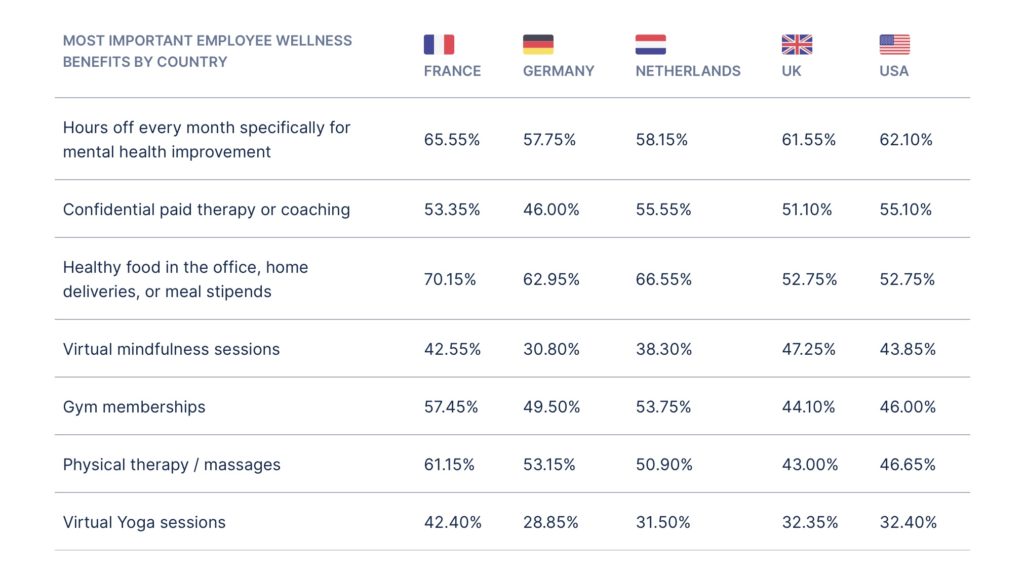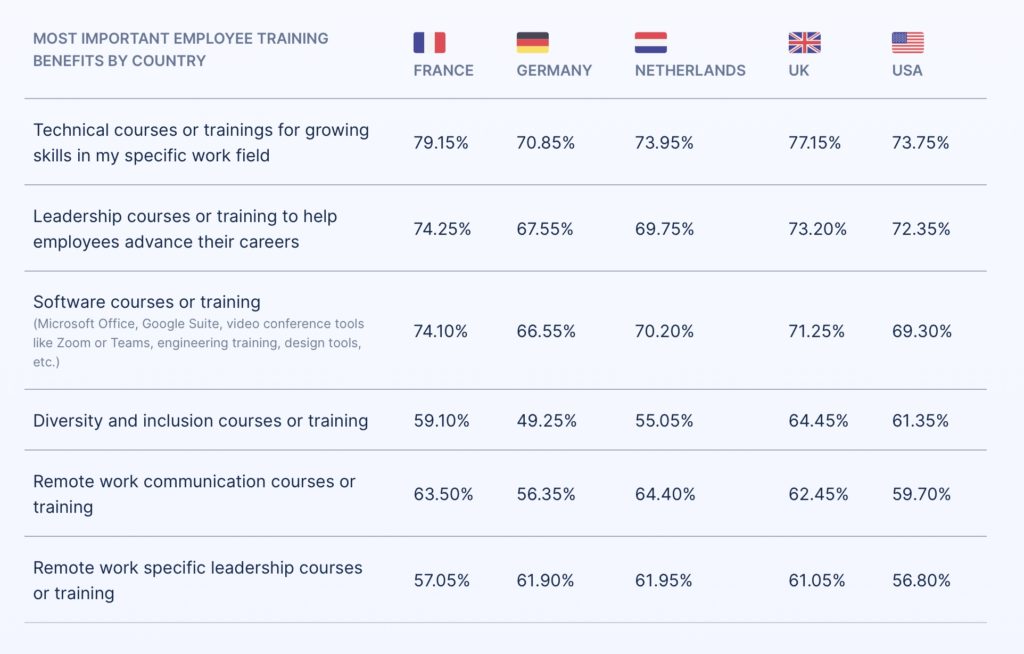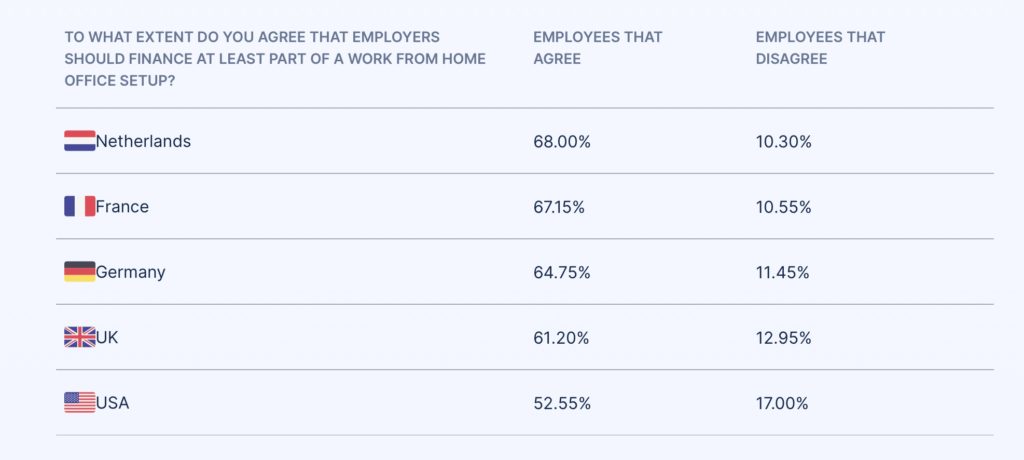A four-day working week and flexible hours are the most desired employee benefits globally, according to a new survey.
The survey of 10,000 full-time employees in France, Germany, the Netherlands, the UK, and the US across different genders, job roles, industries, parental status and countries, carried out by Remote, aimed to discover which wellness-specific benefits were the most important.
In the UK and the US, access to hours off work each month for mental health improvement is the most important employee wellness benefit for companies to offer, confirmed Remote, the global HR and payroll company. Today, society’s focus on mental wellness is more prevalent than ever. It is vital for employers to follow suit in prioritising the mental health of their staff, and removing the blockages some employees may face in seeking support for mental health improvement, such as time restraints.
TOP EMPLOYEE WELLNESS BENEFITS
In fact, employees in most countries want hours off specifically for mental health every month, with France leading the way (66%), followed by the US & UK (62%), Netherlands and Germany (58%).
In France (70%), Germany (63%) and the Netherlands (67%), however, employees see healthy food in the office, home deliveries or meal stipends as more important than for example, gym memberships or yoga/mindfulness sessions. Therefore, employers of people in these regions should prioritise healthy food in their wellness packages.

FLEXIBLE WORKING ARRANGEMENTS
Employees in almost every job function want flexible hours, with HR department wanting this the most (79%), followed by finance and accounts (78%), sales (77%), IT (74%), production (73%), marketing (73%), and advertising (68%).
Flexible working is also the most important benefit in every job function except production and other roles. Employers with high numbers of staff working in production roles and roles not listed specifically in our survey could be better off incorporating company-sponsored retirement plans or pensions into their benefit packages.
Looking at the rest of the survey results, access to dedicated breastfeeding rooms in the office is the most important to employees in advertising roles. However, no matter the industry you’re in, employers should always consider creating dedicated private spaces for parents to breastfeed. Whilst promoting inclusion, this also helps welcome and support new parents returning to the workplace, and is likely to attract a more diverse range of high quality candidates.
TOP TRAINING BENEFITS
The top employee training benefit is technical courses or training for skills growth in specific work fields, demanded by over two-thirds of employees across Europe and the US. Whether your workforce is more male or female dominated, providing career-specific training is crucial. Employees in France (79%) valued training for skills more than those in Germany (71%), UK (77%), US (74%) and Netherlands (74%).
As the table below indicates, diversity and inclusion training came in below other courses. While this could be an indication that employees have not seen much value from diversity training in the past, it may also mean they do not see value in diversity or inclusion, which would be a sign that more and better training should be provided, noted the study.
The most important training-related benefit for both males and females is the opportunity to take part in technical courses or training for skills growth in their specific work field. This is a perk that benefits both employees and employers, staff will benefit from greater job satisfaction and improved knowledge, whilst employers will see better efficiency and increased staff retention.

HOME-OFFICE SETUP BENEFITS
Most employees want their employer to partially set up home office (62%). Setting up a home office can be an expensive cost for employees to take on, especially if the role requires specialist equipment. Those in the Netherlands (68%), see it as important that monitors, desks, chairs and other equipment needed for remote work, is paid for at least partially by their employer.
Looking from a regional level, partial financing for a home office setup is important to almost 70% of employees in the Netherlands, however it’s important to just over half of employees in the USA. This, once again, stresses the importance of a curated global benefit plan adjusted to the desires of the local population.

For more information on the benefits study, click here.





































